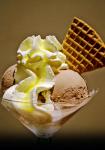 Pneumonia and diarrhoea have collectively claimed the lives of over three lakh children in India in 2013, posing a major challenge to public health in the country, a report said.
Pneumonia and diarrhoea have collectively claimed the lives of over three lakh children in India in 2013, posing a major challenge to public health in the country, a report said.
The '2014 Pneumonia and Diarrhoea Progress Report', released by the International Vaccine Access Center at the Johns Hopkins Bloomberg School of Public Health, highlights India's persisting burden of these two ailments.
"As per the latest estimates from the United Nations Children's Fund, pneumonia and diarrhoea collectively claimed more than 3,00,000 children in India in 2013," the report said.
Out of these, pneumonia killed over 1.7 lakh children under five years of age in the country, it said.
"Despite major reductions in pneumonia and diarrhoea mortality globally, progress in the highest-burden countries remains fairly stagnant. Introduction and scale-up of proven interventions that protect, prevent and treat pneumonia and diarrhoea need to be accelerated to ensure that every child, no matter what life circumstances he or she is born into, will have the chance to celebrate his/her fifth birthday," the report said.
According to the report, India ranks third lowest compared to the 15 other high burden countries for its Global Action Plan for Pneumonia and Diarrhoea score-a calculated average of coverage levels for the vital pneumonia and diarrhoea interventions outlined in the World Health Organisation and UNICEF's integrated GAPPD for which data are available, including vaccination, exclusive breastfeeding, access to care, and use of antibiotics, oral rehydration solution, and zinc.
However, it also noted that India is in a position to improve its ranking following the recent commitments it has made towards access to child health interventions.
It also notes marginal progress towards improving coverage of life-saving interventions to prevent child deaths and those suffering from these diseases. "In India, pneumonia and diarrhoea have been a health challenge for very long time. But it is heartening to see that the government has started intensifying strategies to combat these diseases through various interventions," Dr V K Paul, head of pediatrics, All India Institute of Medical Sciences said in a statement.
"These include the government's decision to introduce the pentavalent vaccine against Hib pneumonia and meningitis in an additional 11 states, introduce rotavirus vaccines for diarrhea in its routine immunisation program, and step up the measles vaccination program," Paul added.
However, as the report suggests, we need to move faster to save many more lives of our Indian children. In particular, there is a need to raise the coverage of pneumonia treatment in the community, he said.
For the first time, the report also includes a subnational analysis for India. A total of 27 states in India for which data were available, were ranked based on their GAPPD score. Of these, Goa performed the best and Meghalaya the worst. The analysis also revealed high levels of inequities in access to interventions between urban and rural regions within states.
"We celebrate the progress in preventing pneumonia this World Pneumonia Day, while recognising the need to ensure that all children have access to care and early diagnosis, vaccines, and medication," Kate O'Brien, professor, Johns Hopkins Bloomberg School of Public Health and executive director of the IVAC said.
This year's progress report takes a special look within two large and high-burden countries, India and Nigeria, to identify inequities in coverage levels that exist between states.
According to the report, the ministry of health and family welfare has demonstrated its commitment to the integrated approach outlined in GAPPD through several recent efforts, including a workshop on "Integrated Approaches for Prevention and Management of Pneumonia and Diarrhoea for achievement of MDG 4", held in October with WHO in Delhi, and the Intensified Diarrhoea Control Fortnight launched in August.
New scorecards are also being developed to better evaluate India's progress on these indicators at the state-and district-level, though more and better data is needed. "The recent decision by the Union Government to introduce three new childhood vaccines in the Universal Immunisation Programme, including vaccines against
rotavirus, rubella, polio (injectable), is a clear indication of the government's commitment," Dr Vijay Yewale, President, IndianAcademy of Pediatrics said in a statement.










